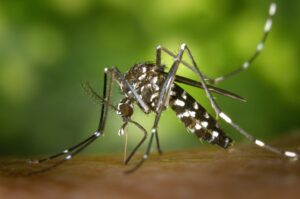Hidden Gems: Underrated Destinations to Explore
Tired of crowded tourist hotspots and looking for a unique travel experience? Discovering underrated destinations can offer you breathtaking landscapes, rich cultures, and authentic experiences without the masses. Here are some hidden gems around the world that deserve a spot on your travel bucket list.
1. Chefchaouen, Morocco
Nestled in the Rif Mountains, Chefchaouen is known as the Blue City for its stunning blue-washed buildings. This picturesque town offers a tranquil escape with its winding alleys, charming cafes, and vibrant markets. Explore the ancient medina, hike to the Spanish Mosque for panoramic views, and immerse yourself in the local culture without the hustle and bustle of more popular Moroccan cities.
2. Hokkaido, Japan
While Tokyo and Kyoto often steal the spotlight, Hokkaido is a treasure trove of natural beauty and cultural experiences. Visit in winter for world-class skiing in Niseko or enjoy the vibrant flower fields in Furano during the summer. Don’t miss the Sapporo Snow Festival or the relaxing hot springs of Noboribetsu. Hokkaido’s pristine landscapes and seasonal attractions make it a year-round destination.
3. Valletta, Malta
Valletta, the capital of Malta, is a UNESCO World Heritage site filled with history and charm. Wander through its narrow streets and discover baroque architecture, stunning churches, and historic fortifications. Visit the Grand Master’s Palace, St. John’s Co-Cathedral, and the Upper Barrakka Gardens for breathtaking views of the Grand Harbour. Valletta’s rich history and vibrant cultural scene make it an underrated European gem.
4. Tbilisi, Georgia
Tbilisi, the capital of Georgia, is a city where old meets new. Its diverse architecture, ranging from medieval fortresses to modern structures, tells the story of its rich history. Stroll through the historic Old Town, relax in the famous sulfur baths, and enjoy the local cuisine and wine. The city’s unique charm and hospitality make it a must-visit destination in the Caucasus region.
5. Luang Prabang, Laos
Luang Prabang, a UNESCO World Heritage site in Laos, is a serene and spiritual destination. Nestled between the Mekong and Nam Khan rivers, the city is known for its well-preserved temples, French colonial architecture, and vibrant night markets. Wake up early to witness the alms-giving ceremony, visit the majestic Kuang Si Waterfall, and take a boat trip on the Mekong River. Luang Prabang offers a peaceful retreat with plenty of cultural experiences.
6. Puglia, Italy
Escape the crowds of Rome and Florence and head to Puglia in southern Italy. Known for its whitewashed hill towns, stunning coastline, and delicious cuisine, Puglia offers a more relaxed and authentic Italian experience. Visit the trulli houses in Alberobello, explore the baroque city of Lecce, and enjoy the pristine beaches of the Gargano Peninsula. Puglia’s rich history and laid-back vibe make it a perfect off-the-beaten-path destination.
7. Salento, Colombia
Salento, located in the coffee region of Colombia, is a charming town surrounded by lush landscapes and towering wax palm trees. Take a hike in the Cocora Valley, visit a coffee farm to learn about Colombia’s famous coffee production, and stroll through the colorful streets of the town. Salento’s natural beauty and welcoming atmosphere make it a delightful destination for nature lovers and coffee enthusiasts.
8. Ljubljana, Slovenia
Ljubljana, the capital of Slovenia, is a small but vibrant city with a rich history and a lively cultural scene. Explore the medieval Ljubljana Castle, stroll along the picturesque Ljubljanica River, and visit the Central Market to sample local delicacies. The city’s green spaces, such as Tivoli Park, and its commitment to sustainability make it a perfect destination for eco-conscious travelers.
9. Kotor, Montenegro
Kotor, located on the Adriatic coast of Montenegro, is a hidden gem with stunning scenery and a well-preserved medieval old town. Climb the ancient city walls for breathtaking views of the Bay of Kotor, wander through the narrow streets and squares, and explore the historic churches and palaces. Kotor’s dramatic landscapes and rich cultural heritage make it a captivating destination.
10. Raja Ampat, Indonesia
For an unforgettable adventure, visit Raja Ampat in Indonesia. This remote archipelago is renowned for its incredible marine biodiversity, pristine coral reefs, and crystal-clear waters. It’s a paradise for divers and snorkelers, but also offers beautiful beaches, lush jungles, and a chance to experience the traditional culture of the local communities. Raja Ampat’s untouched beauty makes it a true hidden gem.
Get Ready for Your Next Adventure with Destinations Travel Clinic
Before you set off to explore these underrated destinations, make sure you’re prepared with a visit to Destinations Travel Clinic. We provide comprehensive travel health services, including vaccinations, travel health advice, and essential medical supplies. Our expert team is here to ensure you have a safe and healthy journey. Visit us today and embark on your adventures with confidence!
Plan Your Visit to Destinations Travel Clinic Now!
Discovering hidden gems can make your travel experiences truly memorable. By exploring these underrated destinations, you’ll enjoy unique adventures and create lasting memories without the crowds. Happy travels!
The medical information on this site is provided as an information resource only and is not to be used or relied on for any diagnostic or treatment purposes. This information does not substitute for professional diagnosis and treatment. Please do not initiate, modify, or discontinue any treatment, medication, or supplement solely based on this information. Always seek the advice of your health care provider first. Full Disclaimer








 Nestled near the northern edge of the St. Lawrence Lowlands, Ottawa, Ontario, offers some of the best stargazing spots in Canada. Whether you’re a seasoned astronomer or a casual stargazer, the dark skies around the nation’s capital provide a stunning canvas for observing the cosmos. In this guide, we’ll explore the best locations, optimal times of year, notable cosmic events, and common constellations visible from the area.
Nestled near the northern edge of the St. Lawrence Lowlands, Ottawa, Ontario, offers some of the best stargazing spots in Canada. Whether you’re a seasoned astronomer or a casual stargazer, the dark skies around the nation’s capital provide a stunning canvas for observing the cosmos. In this guide, we’ll explore the best locations, optimal times of year, notable cosmic events, and common constellations visible from the area.





 As Canada Day approaches, we at Destinations Travel Clinic would like to take a moment to express our heartfelt gratitude and appreciation to the wonderful community that has supported us over the years. It is also a time to reflect on the incredible opportunities and privileges that come with living in this beautiful country. Join us as we celebrate this special day and acknowledge the support of our local family, as well as the countless opportunities Canada has to offer.
As Canada Day approaches, we at Destinations Travel Clinic would like to take a moment to express our heartfelt gratitude and appreciation to the wonderful community that has supported us over the years. It is also a time to reflect on the incredible opportunities and privileges that come with living in this beautiful country. Join us as we celebrate this special day and acknowledge the support of our local family, as well as the countless opportunities Canada has to offer. y, the first of several potential vaccines in the pipeline for RSV to be licensed anywhere.
y, the first of several potential vaccines in the pipeline for RSV to be licensed anywhere.